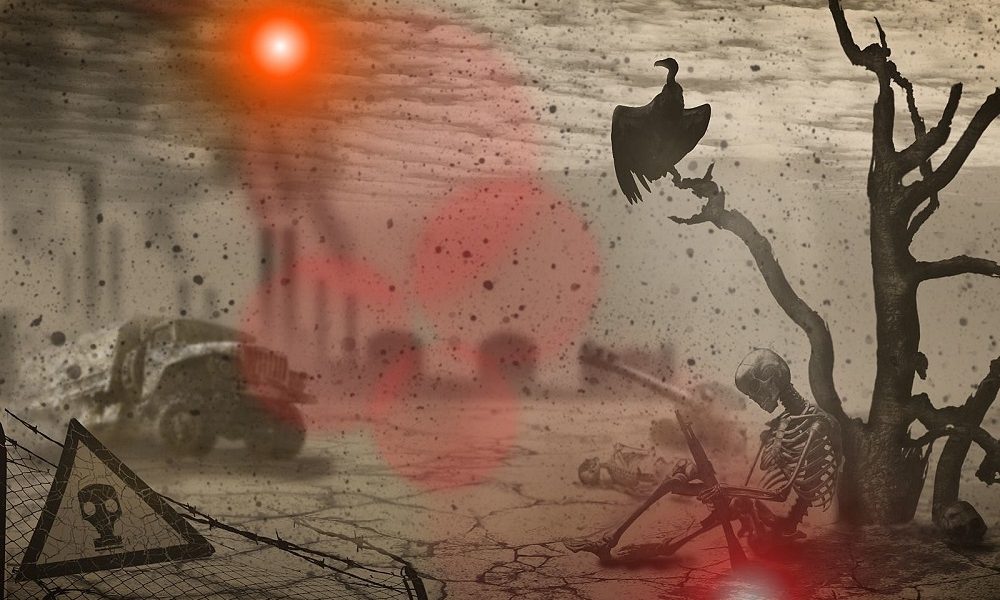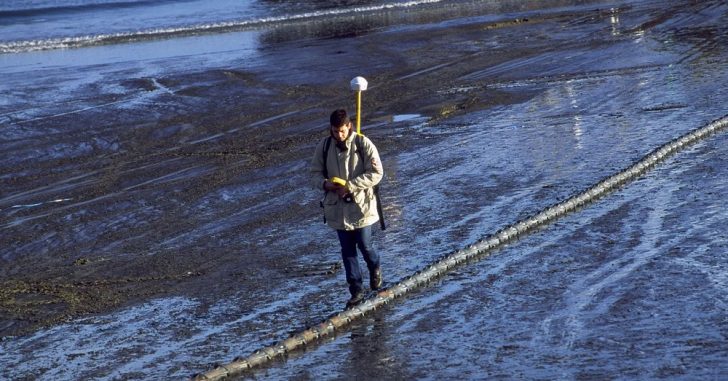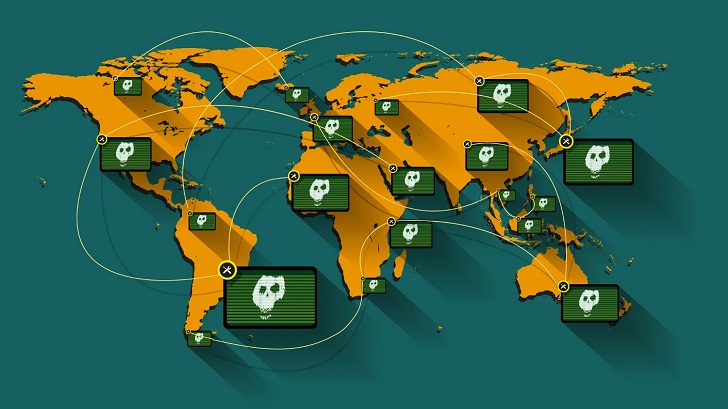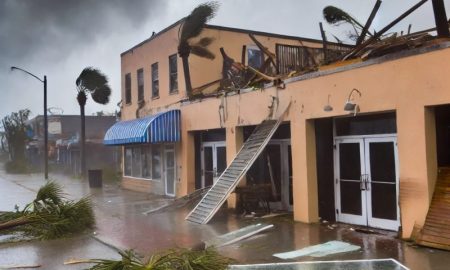
The Internet Apocalypse: How Serious Is the Threat?

The internet has become an essential part of our daily lives in today’s interconnected world. From communication to commerce, information sharing to entertainment, the internet has revolutionized how we interact and operate.
However, have you ever considered what would happen if the internet were to experience a catastrophic failure? Below we delve into the “internet apocalypse” concept and explore such an event’s potential implications and challenges.
Understanding the Internet Apocalypse
The term “internet apocalypse” refers to a hypothetical scenario where the global internet infrastructure experiences a complete and prolonged shutdown. It would entail a massive disruption of internet services, rendering them inaccessible or severely limited for an extended period. While such an event may seem far-fetched, examining the potential consequences is crucial.

Getty Images/ Wired | People on Earth can be left without the internet for several months as a new possibility of internet apocalypse has emerged
Societal Disruption:
An internet apocalypse would cause significant societal disruption on various fronts. Firstly, communication channels would be severely affected, as email, instant messaging, and social media platforms would be inaccessible. This would impede personal and professional communication, hindering collaboration, information exchange, and even emergency response systems.
Economic Impact:
The economic impact of an internet apocalypse would be staggering. The reliance on digital infrastructure for financial transactions, e-commerce, and supply chain management would result in severe disruptions.
Businesses that heavily depend on the Internet would struggle to operate, leading to potential financial losses, layoffs, and even closures. Stock markets, banking systems, and global trade would suffer immensely, causing a domino effect on the global economy.

CRAIG TAYLOR/ CYBERHOOT | In the face of solar storms, our digital existence hangs in the balance
Information and Media Crisis:
The internet is the primary source of information and news for many people. An internet apocalypse would severely limit access to real-time news updates, educational resources, and research materials.
This would impede the dissemination of critical information, potentially leading to misinformation, panic, and social unrest. Moreover, the loss of cloud-based storage services could permanently lose valuable personal and professional data.
Healthcare and Public Services:
The impact on healthcare and public services during an internet apocalypse cannot be overlooked. Relating digital systems to patient records, medical research, and telemedicine would pose significant challenges. Vital healthcare services, emergency response systems, and infrastructure management would be severely affected, endangering public health and safety.

Revelo/ Getty Images | Continued research and investments in space weather forecasting and preparedness will be crucial to safeguarding our technological systems
Cybersecurity Concerns:
An internet apocalypse could exacerbate cybersecurity risks. With a lack of internet connectivity, security measures, and protocols would be compromised. Cybercriminals might exploit the chaos, launching large-scale cyberattacks, data breaches, and identity theft. The absence of reliable internet infrastructure would make it challenging to mitigate such threats effectively.
Technological Dependence:
The concept of an internet apocalypse highlights our heavy reliance on technology. Our lives have become intricately intertwined with internet connectivity, from smart devices to Internet of Things (IoT) devices. An extended disruption would expose vulnerabilities and prompt a reevaluation of our technological dependence, potentially leading to a shift in societal behavior and technology usage.
Mitigation Strategies:
While the idea of an internet apocalypse can be unsettling, it is essential to consider measures that can help mitigate the potential impact. Redundancy and diversification of critical internet infrastructure, robust backup systems, and disaster recovery plans would be crucial.
Governments, organizations, and individuals must prioritize cybersecurity practices, invest in resilient networks, and develop contingency plans to ensure continuity in the face of such an event.
More in Tech
-
`
The Complete Relationship Timeline of Taylor Swift & Travis Kelce
When you think of unlikely couples, Taylor Swift and Travis Kelce might not be the first pair that comes to mind....
May 29, 2024 -
`
What is Business Administration and What Opportunities Does it Offer?
In today’s bustling world of commerce and industry, the term “business administration” often looms large, yet its true essence remains shrouded...
May 22, 2024 -
`
What is AI? Exploring the World of Artificial Intelligence
In today’s rapidly evolving technological landscape, the term “Artificial Intelligence” (AI) has become a buzzword that sparks curiosity, speculation, and even...
May 16, 2024 -
`
How Many Jobs Are Available in Real Estate Investment Trusts? Exploring Career Opportunities
Are you seeking a career path with a blend of financial savvy and a knack for the real estate market? Look...
May 9, 2024 -
`
The Staggering Net Worth of the Richest Podcaster Joe Rogan in 2024
Joe Rogan has become a household name, largely due to his immensely popular podcast, “The Joe Rogan Experience.” With a blend...
April 29, 2024 -
`
What Are Routing Numbers & Do Credit Cards Have One?
When managing your finances, understanding the various numbers and terms associated with your bank accounts and credit cards is crucial. A...
April 24, 2024 -
`
Tesla Stock: Let’s Address the Elephant in the Room
Why is Tesla stock dropping? This is the million-dollar question that has been on the minds of investors and enthusiasts alike...
April 16, 2024 -
`
Bearer Bonds: Definition, How They Work & Are They Valuable?
Bearer bonds are unique securities that have a colorful history and a distinctive way of functioning that sets them apart from...
April 10, 2024 -
`
Is Gwen Stefani Pregnant? How True Are the Rumors?
The rumor mills are churning once again. But this time, the spotlight is on none other than Gwen Stefani. The buzz?...
April 2, 2024















You must be logged in to post a comment Login